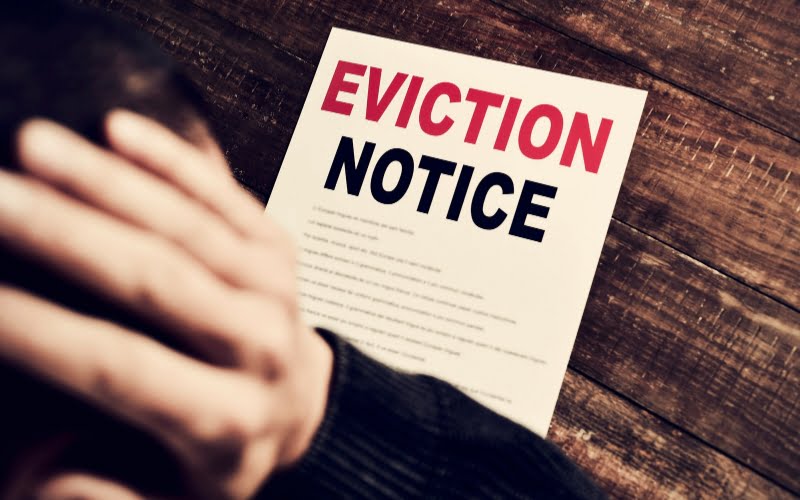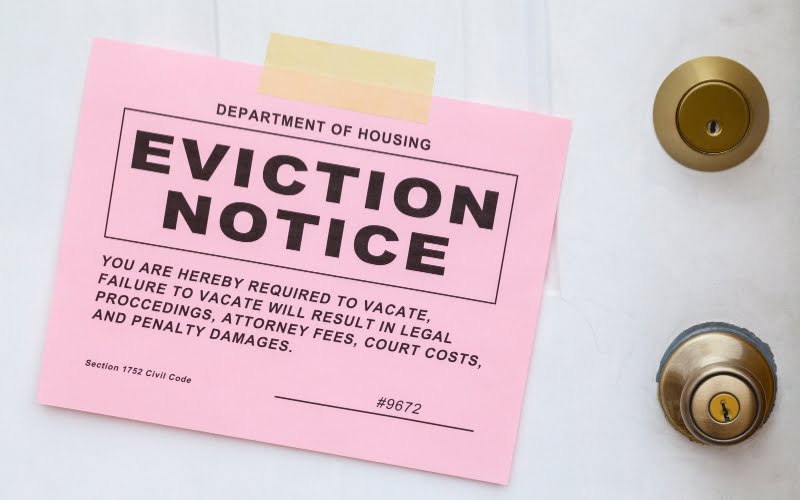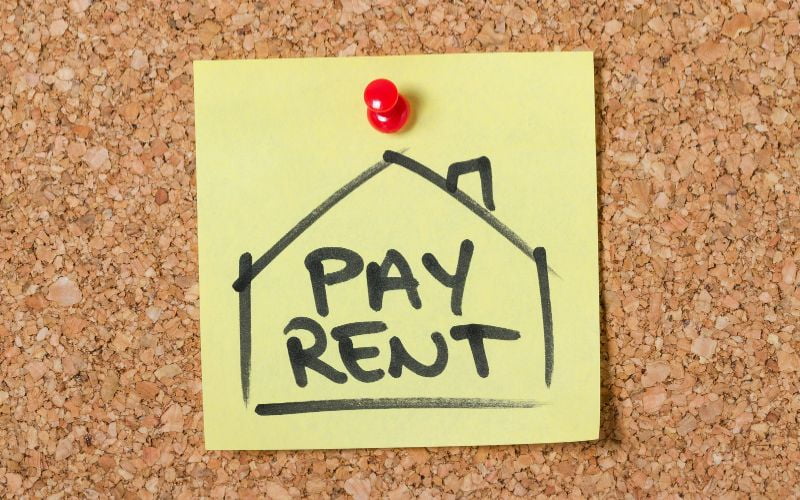Last Updated on March 18, 2024 by Kelvin Nielsen
Landlords can evict tenants for non-payment of rent; Arizona makes no exception. As a landlord, you must go through the state’s judicial process for the removal to be successful.
You must not use self-help means to try to get the tenant to leave. Neither should you try to retaliate against the tenant to force them to abandon their rented premises. All these actions are illegal and can get you in trouble.
Here’s a guide on wrongful evictions in Arizona.
In this blog, we’ll take you from A to Z when it comes to evicting a tenant in Arizona for nonpayment of rent.
Arizona Eviction Process for Nonpayment of Rent
Step 1: Serve the tenant with an eviction notice for nonpayment of rent.
First and foremost, you cannot begin an eviction process against a tenant in Arizona without a just cause. Besides nonpayment of rent, other legitimate grounds for eviction include:
- End of lease
- Holdover Tenancy
- Habitability Violation
- Falsified Basic Information on Rental Application
- Falsified Criminal or Eviction History on Rental Application
- Repetitive Lease Violations
- Illegal Activity
Next, you must serve the tenant with the appropriate eviction notice for not paying rent on time. In this case, you must serve the tenant with the 5-Day Notice to Quit. This will provide the tenant with two options – pay the rent due or leave. They must do so within 5 days.
In Arizona, unless the lease states otherwise, rent becomes due on the 1st day of every pay period and becomes late a day after. And unlike some other states, tenants don’t have a right to a legal grace period.
If the tenant doesn’t pay the rent or move out within 5 days, you can move to court and file a lawsuit.
Step #2: File a complaint in either a Justice Court or the Superior Court.
After the 5 days are over, you can escalate the matter further by going to court. You can file the lawsuit (Forcible Entry Detainer) in either a Justice Court or the Superior Court depending on the size of the lawsuit.
If you’re suing the tenant for below $10,000, you must file the lawsuit in a Justice Court. But if the amount exceeds $10,000, then you must do the filing in a Superior Court. This will set you back by $35 and $218, respectively.
Step #3: The tenant is served.
After your lawsuit has been notarized by the court’s clerk, copies of the Summons and Complaint will be issued. These will then need to be served to the tenant using a process server.
The process server, typically a sheriff or a constable, will need to serve the documents in a particular manner. The following are the options.
- Serve a copy in person.
- Leave a copy with someone who is of suitable age and lives together with the tenant.
- Deliver a copy to the tenant’s attorney, or any other agent authorized to act on their behalf.
You can generally expect the court hearing to be held no later than 5 days after the filing of the complaint.
Step #4: The tenant files an answer.
Arizona tenants have a right to respond to their landlord’s allegations. The tenant must submit the answer on or before the initial appearance.
The tenant can choose to fight or admit the landlord’s allegations. If the tenant chooses to fight their eviction, the following are some of the defenses they can give.
- The eviction notice you served them had critical errors. For instance, it failed to mention the effective date of eviction.
- The eviction notice was served irregularly.
- The tenant paid the due rent within the five days required by the notice. That is, within five calendar days.
- The eviction is an act of retaliation against the tenant for exercising their legal rights. For example, the tenant failed to pay rent because they were withholding it until necessary repairs were made. (The state of Arizona allows tenants to do so).
- The eviction is discriminatory. In other words, you’re trying to evict the tenant due to their race, color, nationality, sex, or any other protected class under Federal or state fair housing laws.
- The tenant paid rent on time and you’re simply harassing them.
Step #5: The tenant files a counterclaim.
In addition to filing an answer, the tenant can also file a counterclaim. Tenants get to do so if they believe that the landlord owes them money because of a lease violation.
Lease violations that can lead to counterclaims in Arizona include the following.
- Noncompliance with the terms of the lease
- Habitability issues that impact the tenant’s health or safety.
- Violations of the state’s landlord-tenant act.
- Acts that can qualify as retaliatory against the tenant.
- Illegal eviction methods, such as using self-help means to evict the tenant.
Step #6: Hearing is held.
Once the complaint is successfully filed, you can expect the hearing to take place within 5 days. Both parties have the option to make the initial appearance via phone or video conference.
The judge can rule in your favor if any of the following happens.
- The tenant shows up and pleads guilty.
- The tenant fails to show up.
- The tenant fails to convince the court by not having a valid defense.
- The judgment falls in your favor after all parties have submitted their case.
If the judgment is in your favor, the court will issue you with a Writ of Restitution. This will give the tenant 5 calendar days to move out after the judgment is entered. The only exception here is if the tenant files an appeal.
Frequently Asked Questions (FAQs): Arizona Eviction Process for Nonpayment of Rent
Q: How long does it take to evict someone in Arizona?
A: Typically, evictions in Arizona take between one and six weeks to complete. Of course, it can take longer under certain circumstances. Including:
- If the tenant files a legal defense
- If the court is backlogged with cases
- If the tenant refuses to cooperate with the court. For example, refuses to get served or fails to show up to court.
- If you make significant mistakes in the process.
Q: What happens after a 5-day eviction notice AZ?
A: The 5-Day Notice to Quit for Nonpayment of Rent gives tenants two options. To either pay the rent due or vacate the premises within the 5 days. After the 5 days are over, the landlord can proceed with the eviction process by filing a lawsuit in a Justice Court.
Q: How long do evictions stay on your record in Arizona?
A: An eviction can stay on a tenant’s record in Arizona for up to 7 years. To remove the record, the tenant may need to do a couple of things. Including, pay all outstanding debts in full and file a motion to seal the record.
Conclusion
The Arizona eviction process for nonpayment of rent is fairly straightforward for landlords. Just make sure to follow the process down to the letter to avoid potential delays and maximize your chances of success.
Disclosure: The content herein isn’t a substitute for advice from a professional attorney. It’s only meant to serve educational purposes. If you have a specific question, kindly seek expert attorney services.
Sources: https://www.azcourts.gov/selfservicecenter/Criminal-Law/Sealing-records, Arizona Residential Landlord and Tenant Act,

Hi, I’m Kelvin Nielsen, an experienced landlord and accomplished real estate lawyer. My focus is on answering your questions about renting in the hopes of making your life as a renter or a landlord a bit easier.







